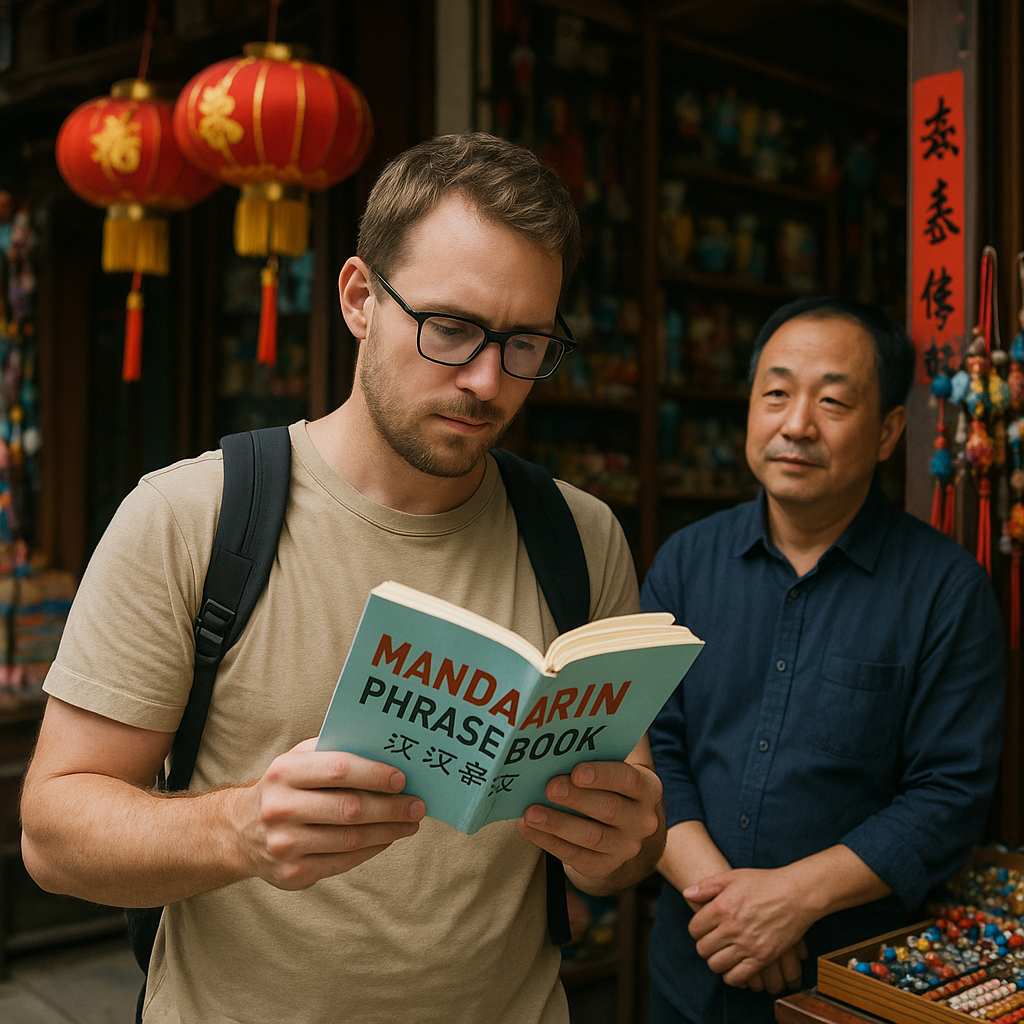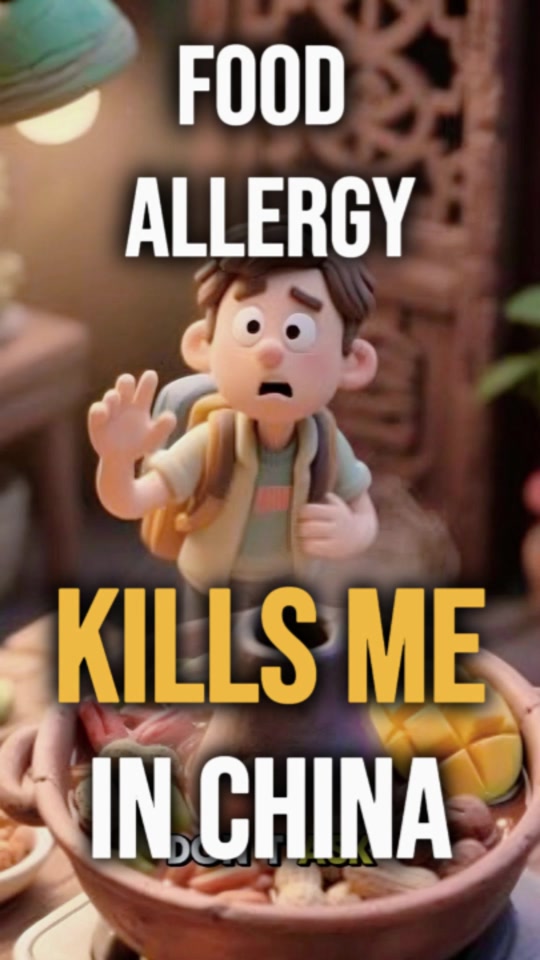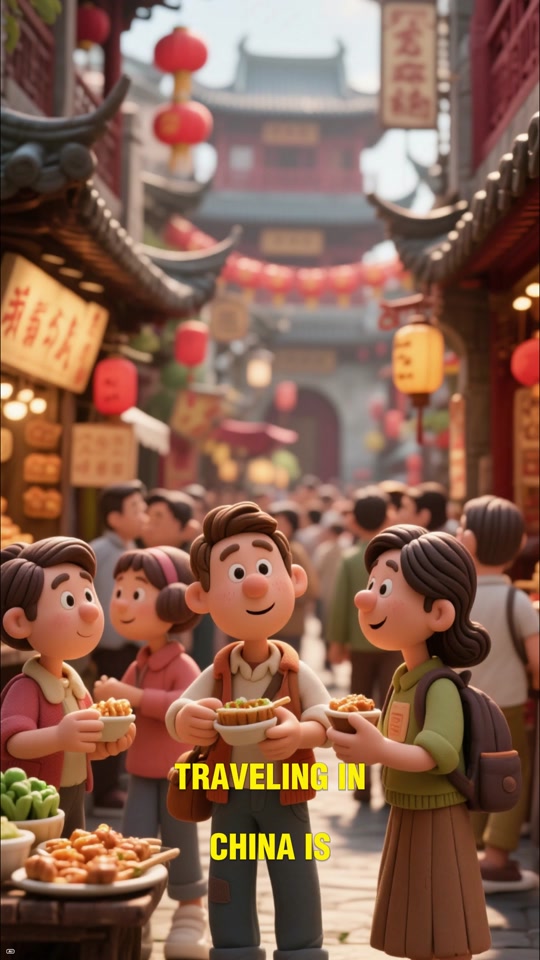Many international travelers rely on Google Translate as their go-to tool when navigating non-English-speaking countries. It's quick, convenient, and free. But while this app may help you decode a menu or a signboard, it often fails in real-life scenarios—especially in a place as linguistically and culturally nuanced as China.
The Illusion of Convenience
Imagine you're in a bustling Chengdu hotpot restaurant. The waiter brings you a laminated menu, all in Chinese. You whip out your phone and scan the menu with Google Translate. Instead of clarity, you get gems like:
- "Duck blood calligraphy"
- "Hairy tofu soup party"
- "Hot watercress explosion organ"
You laugh—but now you have no idea whether you're about to order a vegetarian dish or pig intestines. This kind of contextless translation failure is incredibly common in China, where layered cultural references, idioms, and specialized culinary terms are everywhere.
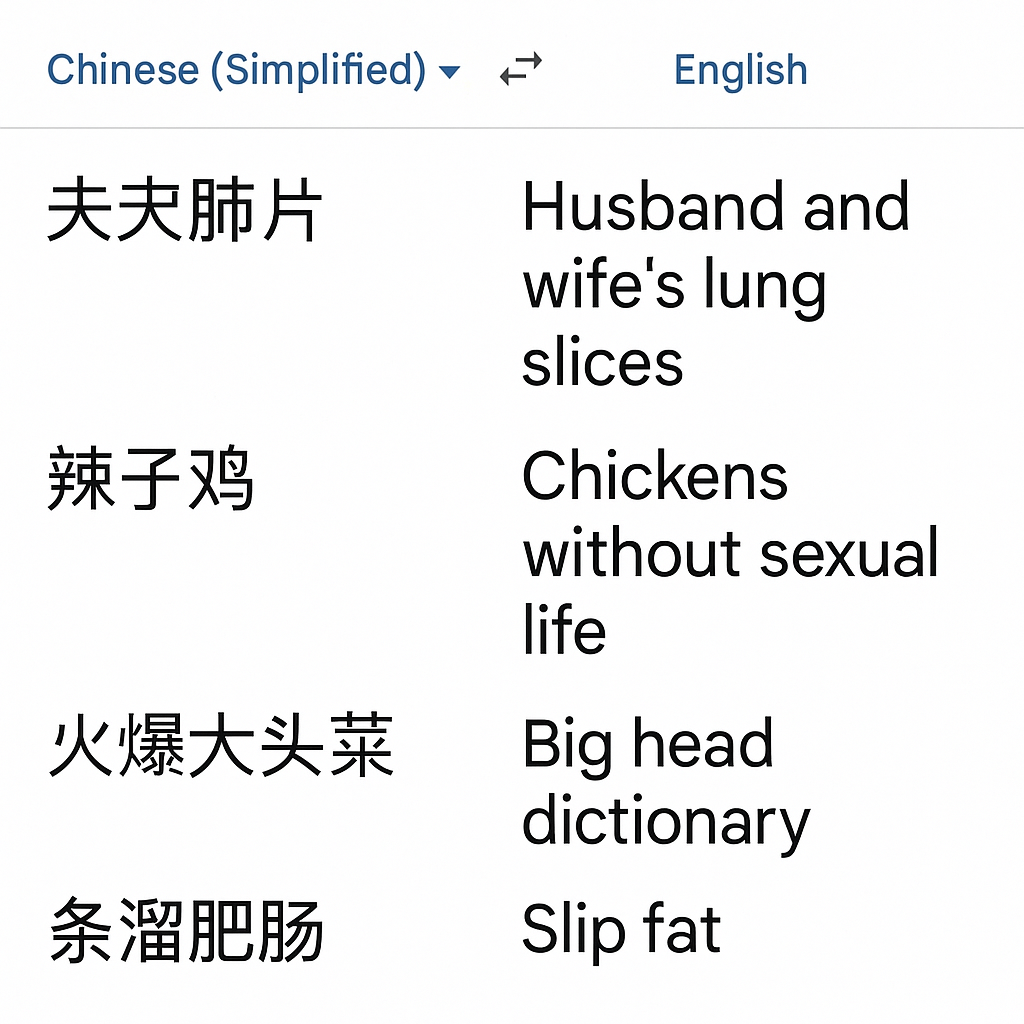
Context Is Everything
Unlike human translators, Google Translate does not understand context, tone, or situational nuance. It translates based on static text segments—often word-for-word—which leads to errors when:
- The sentence depends on implied meaning or tone
- Words have multiple meanings (e.g., 生 can mean raw, student, life, or unfamiliar)
- There's regional slang or local dialect involved
- The phrase is metaphorical, sarcastic, or poetic
This becomes problematic not just in restaurants, but also in more serious settings—like a hospital or pharmacy.
Real-World Example: Medical Translation Gone Wrong
One traveler recounted a time in Xi'an when he used Google Translate to explain he had a "peanut allergy." The app translated "allergy" literally, but failed to convey the severity. The pharmacist thought he was asking for peanuts—not avoiding them—and handed him a snack bar with nuts.
This kind of miscommunication can be life-threatening. And unfortunately, you won't always find someone nearby who speaks fluent English.
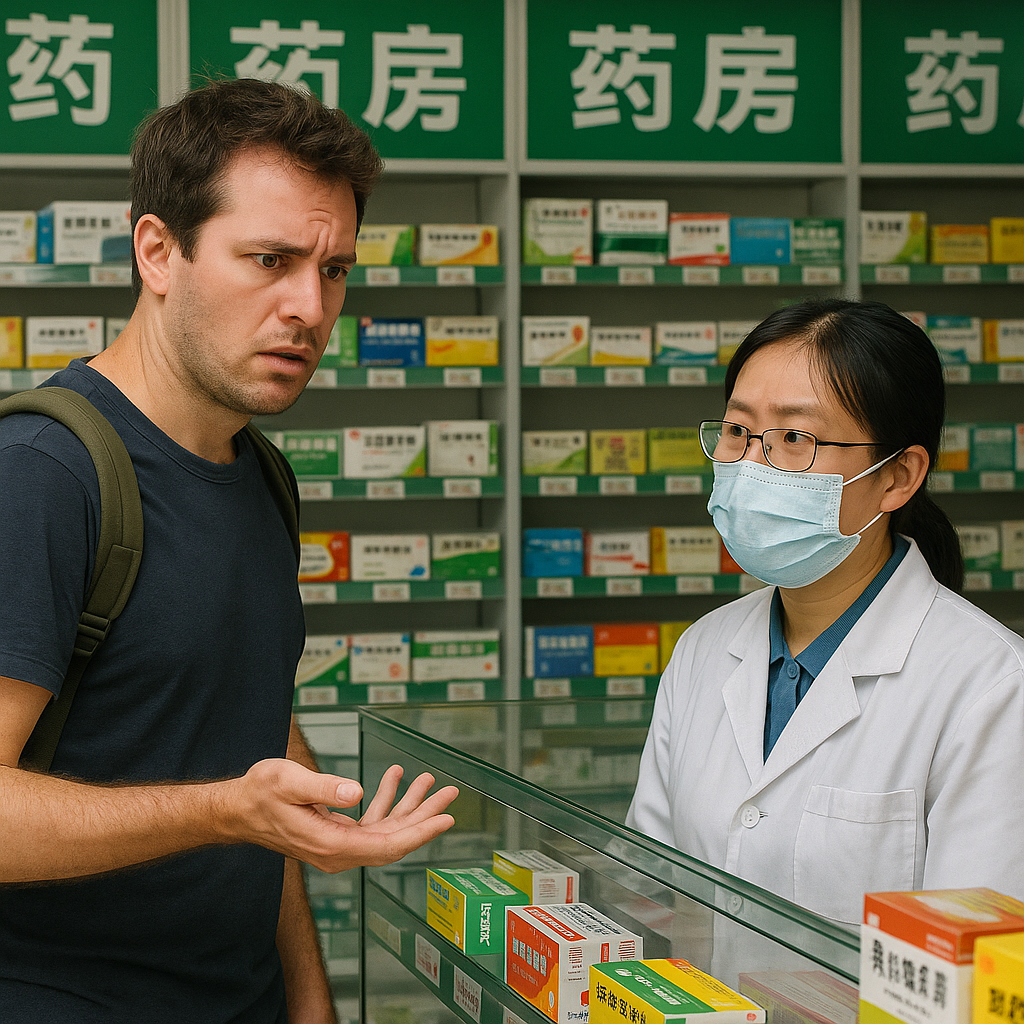
What Happens When You Need Help Fast?
Let's say you've lost your passport, you're late for a train, or you've arrived at a hotel that can't find your booking. You open Google Translate, type in your issue—and get a strange string of characters back. You show it to the clerk, and they tilt their head, puzzled.
This isn't just a technical issue—it's a travel blocker. When stakes are high, you need human-level, real-time communication, not a half-right sentence that might make the problem worse.
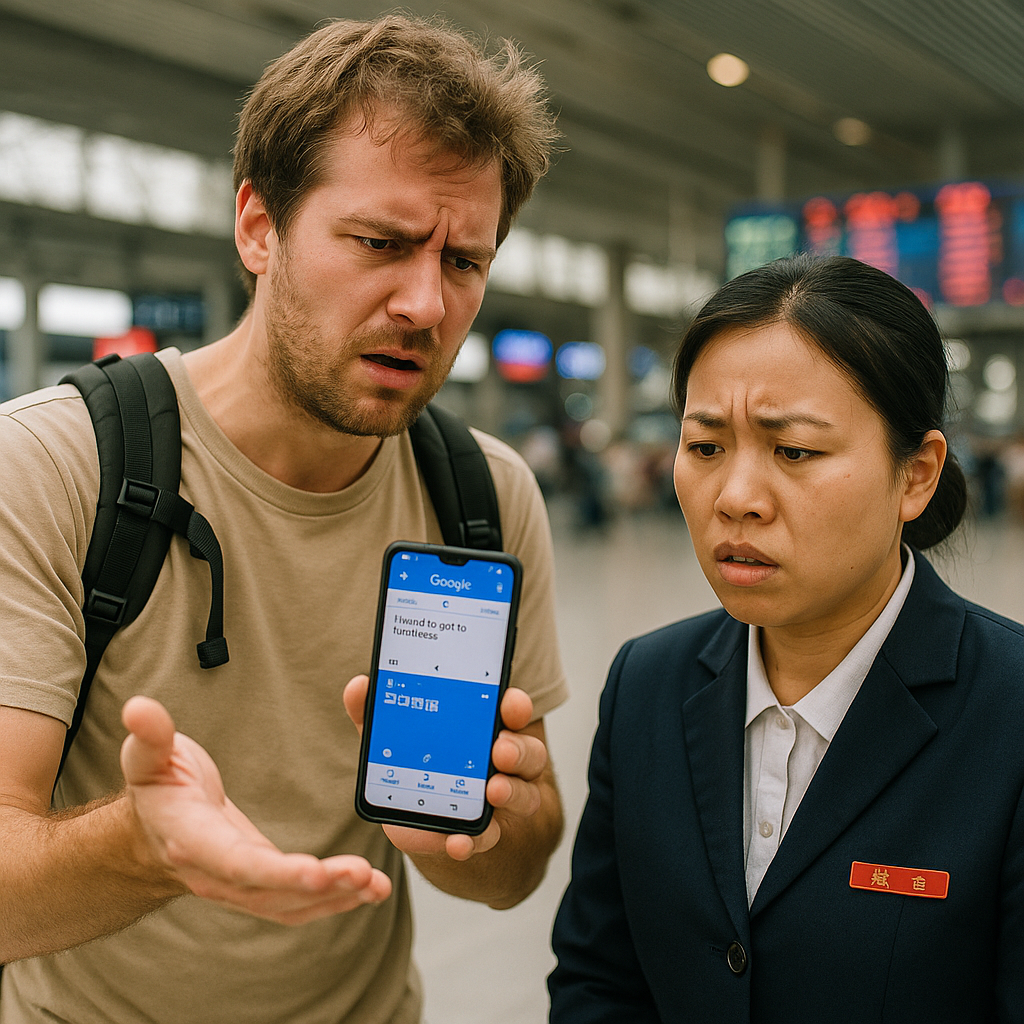
When Translation Apps Make Things Worse
In some cases, Google Translate doesn't just fail—it creates embarrassment or tension. A traveler trying to thank a host for their hospitality accidentally used a translated phrase that implied romantic affection. In another case, someone tried to order vegetarian food and ended up with tripe and duck blood.
Because Google Translate can't distinguish between literal, cultural, and idiomatic usage, it often backfires when you need it most.
What Makes Nihao Travel Different?
Unlike generic apps, Nihao Travel provides human-powered, culturally fluent support—available 24/7 via chat or emergency phone lines. Our travel specialists are bilingual and trained to navigate real-world Chinese scenarios, from dialect confusion to etiquette guidance to fast crisis resolution.
- Lost in transit? We call the train station for you.
- Denied hotel check-in? We speak directly with the clerk and resolve it.
- Accidentally ordered a meat dish? We explain your dietary needs clearly.
- Misunderstood by police or medical staff? We translate with urgency and care.
We provide real human conversation—with empathy, local nuance, and speed. Translation apps will never replace that.
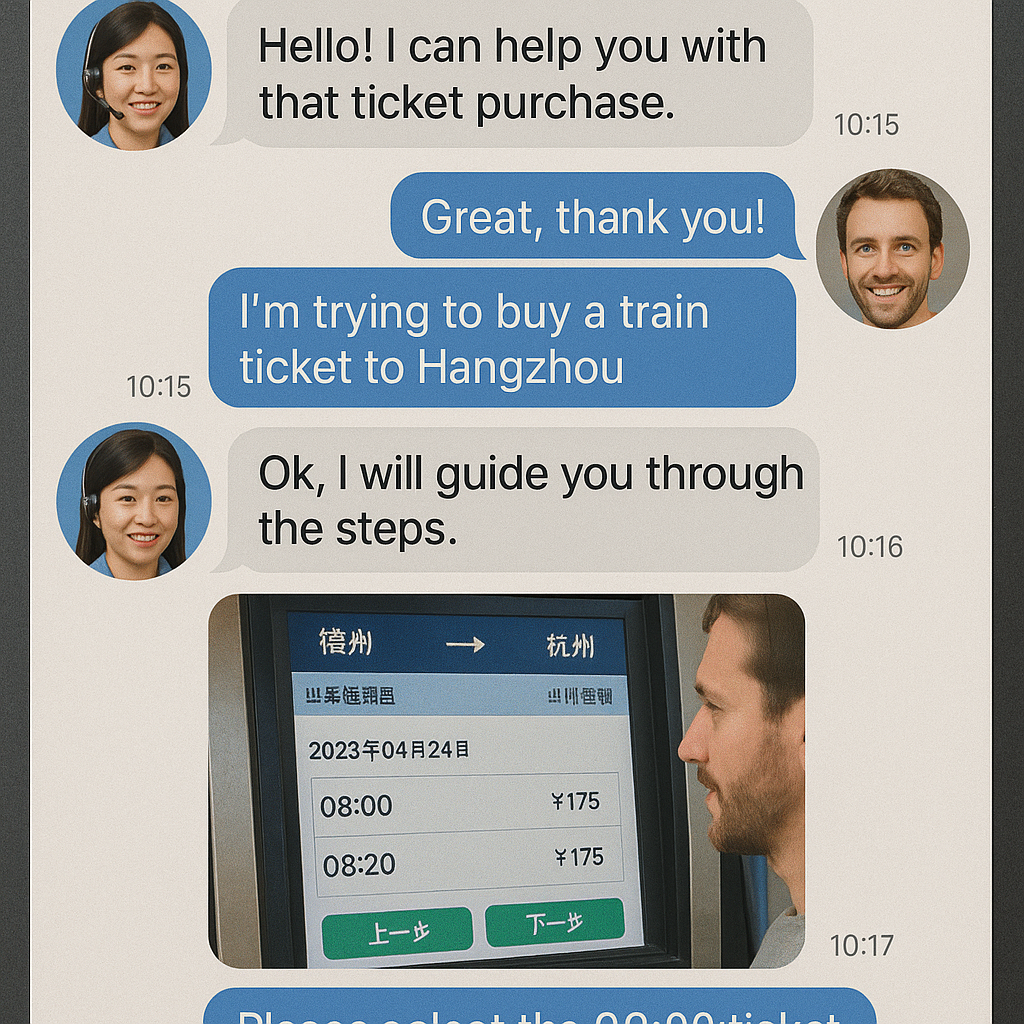
When You Shouldn't Rely on Translation Apps
Translation apps can be handy for basic tasks—but here's when you absolutely should NOT rely on them:
- Medical issues (pharmacies, hospitals)
- Emergency situations (lost items, police, visas)
- Legal or visa language
- Dietary restrictions (especially allergies)
- When tone and politeness matter (e.g., hotels, social customs)
- Anything that could escalate or be misunderstood
In these moments, miscommunication isn't just inconvenient—it's dangerous or expensive. That's why our clients trust us to be the human in the loop.
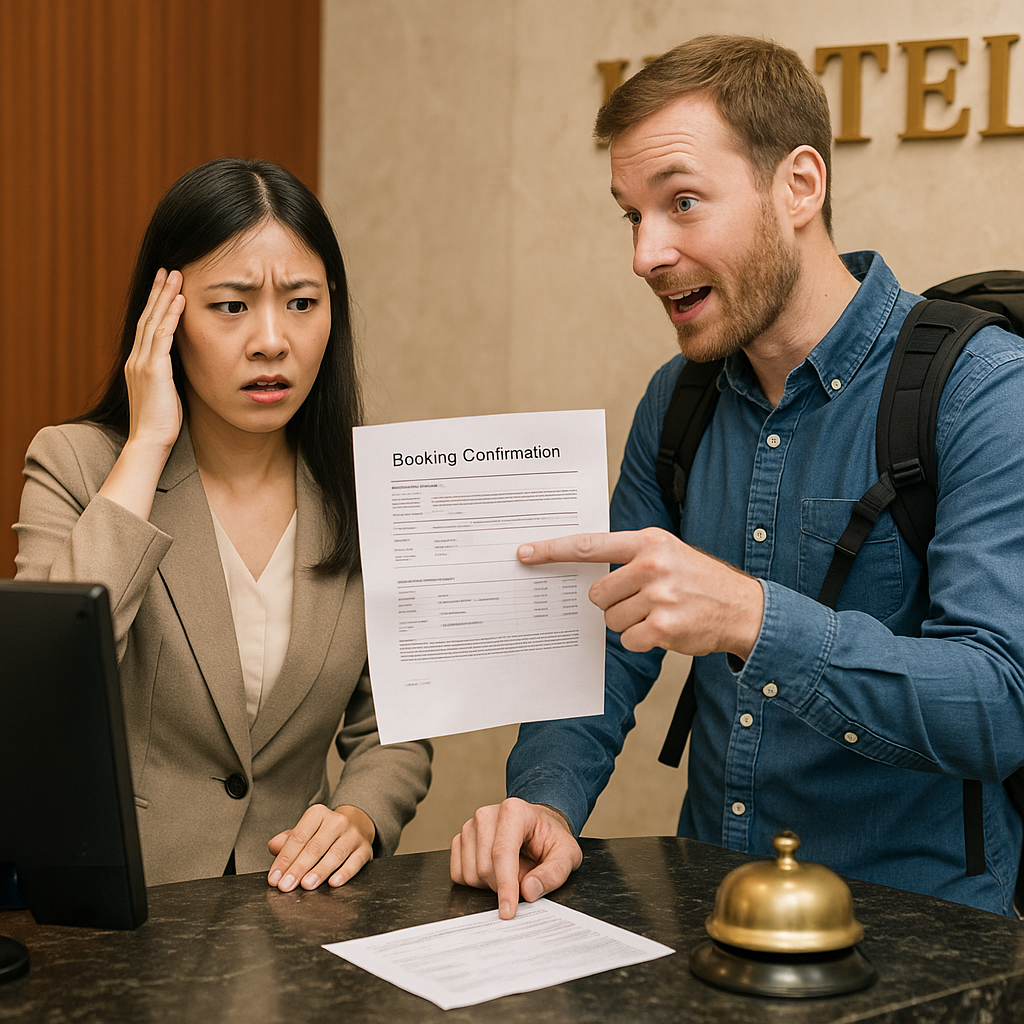
Conclusion: Communication Is Everything
Travel in China is rich, rewarding—and sometimes tricky. With over 200 dialects, layered cultural etiquette, and a fast-moving digital ecosystem, it's not a place where one-size-fits-all apps will do.
That's why Nihao Travel exists: to be your on-demand human bridge to local knowledge, language, and problem-solving. We go beyond translation to ensure that you're understood—and that your journey continues smoothly, even when things go sideways.
Don't get lost in translation. Travel with genius.
Ready to experience China without language barriers? Start your journey with Nihao Travel
